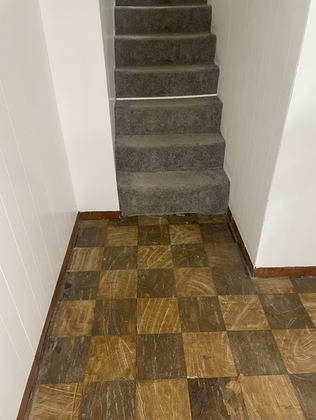FREE ESTIMATES
Contact Us to Arrange a Site Visit and Get a Free Estimate!
(914) 471-7178
EMERGENCY SERVICES AVAILABLE
Why choose PDSNYS?

Our Environmental Abatement Perspective.
PDSNYS, is a licensed and insured, environmental abatement services company.
If you have had a flood, fire, structural failure or simply want to renovate your home or business but have had a certified professional tell you that hazardous materials exist in your property....
Don't panic. Take a breath, then... Call Us.

At PDSNYS, we follow a meticulous abatement process to ensure the safe and effective removal of hazardous materials from properties. Our track record of successfully completed projects and satisfied clients reflects our commitment to excellence.
Our Abatement Services
We specialize in providing comprehensive environmental abatement solutions, ensuring a safer and healthier living and working environment for our clients.
ASBESTOS / LEAD PAINT / MOLD

Residential Abatement
Our residential abatement services are designed to address various environmental hazards, safeguarding homes and families from potential health risks.
After all, we have families too.

Commercial Abatement
We offer tailored abatement services for retail, store front and commercial properties. Mitigating environmental risks and promoting a safe and compliant workplace.

Emergency Response & Insurance
Support Provider
Our teams are equipped to handle emergency abatement situations, providing swift and effective support to minimize environmental hazards and ensure the safety of occupants.
Asbestos Abatement
Lead Containing Paint Abatement

Lead Containing Paint abatement activities are regulated by the United States Environmental Protection Agency (EPA). Perform a Lead test on your home or property.
This will provide you with a confirmation for the presence of Lead paint that will tell the abatement company where and how much lead paint material there is to be abated.

Federal regulations also require using EPA-certified contractors to perform most lead remediation work ordered by government agencies. The owner or contractor needs to clear the remediation method with the agency before beginning the project.

As long as lead paint is in good condition, and the surface hasn't been broken, the paint doesn't pose a serious health threat. The problem comes when the lead paint starts deteriorating, when lead dust and flakes begin accumulating on surfaces such as window sills, counter tops, and floors, as well as on children's toys, clothes, and bedding.
Mold Removal

There is no single type of mold called “black mold” — many molds are black. When people use the term, they may be referring to a type a specific type of mold called Stachybotrys chartarum, also known as Stachybotrys atra.

Mold can consume organic materials like wood, drywall, insulation, and paper backing, which can weaken the structure
of your home.
Over time, mold can cause your home to become unstable, which can be dangerous for the people living there.
In some cases, mold can ruin a building from floor to ceiling, making it necessary to tear it down.

If you are repairing your home or building after a flood or hurricane, and want to prevent mold growth from returning, you should be sure your foundation and structure is dry before you replace the flooring.
This is where PDSNYS comes in. We will deploy our teams to remediate the mold condition, then proceed to completely dry and dehumidify your home or property.


















